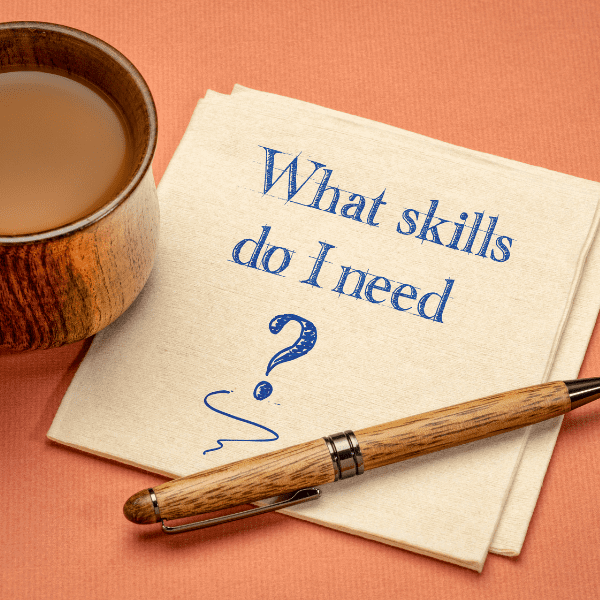Is it soft skills or being a better person

Recent Blogs
Not an attack, an act of accountability
Why AI won’t save a broken project
Belonging Before Performance: why culture eats capability for breakfast
You’re allowed to outgrow old versions of yourself
From Assigned to Accountable: Why title alone isn’t leadership
Leading in the Grey
Why Project Teams should start with curiosity, not connection
Unlearning is the leadership skill nobody talks about
Conflict handled well is a doorway to trust
How do you think about your project team’s skills and what is needed for tomorrow?
I’ve encountered a myriad of terms working with project teams as they describe the traits of people who stand out – “soft skills” and “generic skills” frequently crop up. What they are describing are abilities such as thinking critically, communicating effectively, and problem-solving creatively. I understand these skills under a more holistic banner – the journey to being a better person.
According to the Soft Skills for Business Success report, “Deloitte Access Economics forecasts that soft skill intensive occupations will account for two-thirds of all jobs by 2030, compared to half of all jobs in 2000. The number of jobs in soft-skill intensive occupations is expected to grow at 2.5 times the rate of jobs in other occupations.”
They go on to mention “Soft skills are also referred to as employability skills, enterprise skills and they are transferable between industries and occupations. They include things like communication, teamwork, and problem solving, as well as emotional judgement, professional ethics and global citizenship.”
So why is it when we talk about soft skills, it’s checkboxes on a resume or points to touch on during a personal development review? The human side of soft skills is so much broader and insightful.
At its core, the journey to becoming a better person means evolving in how we interact with the people and environment around us. Think about it:
- A project manager mastering the art of problem-solving isn’t just meeting deadlines. They’re ensuring that a collective group of people achieve a shared vision, regardless of the challenges that arise.
- A marketer harnessing effective communication isn’t just selling a product. They are bridging a gap between a solution and a need, creating connections.
- A mentor utilising their emotional intelligence isn’t merely providing guidance. They’re shaping future leaders, thinkers, and innovators by understanding and nurturing their unique potentials.
How can we cultivate this journey?
Now, the real question emerges: how can we shift our perspective from seeing these abilities as mere “soft skills” to viewing them as stepping stones to becoming a better person?
- Self-awareness: It starts from within. Understand your strengths, weaknesses, emotions, beliefs, and motivations. This inner clarity can be your guiding light.
- Empathy: Strive to place yourself in the shoes of others. When we begin to view situations from diverse perspectives, our understanding of people and problems expands exponentially.
- Lifelong Learning: Embrace the beauty of perpetual growth. Be it through books, courses, or personal interactions, cherish the knowledge that life has to offer.
- Feedback and Reflection: Regularly seek feedback, and more importantly, act on it. Combine this with self-reflection to ensure that the path to becoming a better person is always illuminated.
Here’s how a project can benefit from team members striving to be a better person.
Enhanced Team Collaboration
Effective communication and interpersonal abilities, facilitate better understanding among team members. This can lead to improved teamwork and collaborative problem-solving.
Effective Conflict Resolution
Differences in opinions and approaches are inevitable in a project team. Team members who can address disagreements constructively, ensure conflicts become opportunities for growth rather than roadblocks.
Adaptability to Change
Projects often face unforeseen challenges or changes in scope or direction. Team members with well-developed adaptability and resilience can navigate these changes more efficiently, ensuring the project remains on track.
Enhanced Stakeholder Communication
Engaging with stakeholders, whether they’re customers, senior management, or external partners, requires tact, diplomacy, and clear communication to manage stakeholder expectations and feedback effectively.
Improved Decision Making
Critical thinking enables teams to evaluate problems, consider multiple solutions, and choose the most suitable one. This skill is invaluable in project environments where decisions often have lasting consequences.
Increased Productivity
A harmonious team environment, cultivated by positive interpersonal relationships and effective communication, often leads to increased productivity. Team members feel understood, valued, and motivated to contribute their best.
In essence, while technical skills might get the job done, soft skills determine how the job is done. For a project team, nurturing these skills is not just about enhancing individual capabilities but about elevating the team’s collective potential. In the fast-evolving professional landscape, where technical skills can become out of date, soft skills remain timeless.
